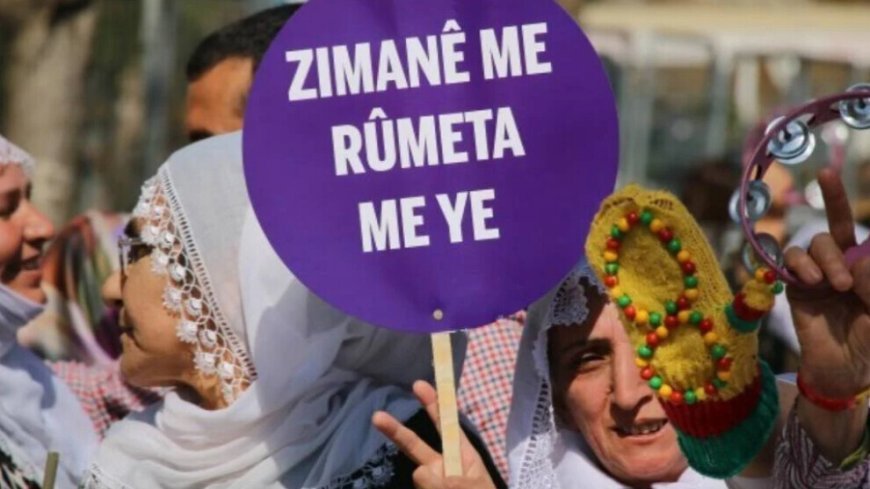KJK: Mother tongue is identity of people
The Kurdistan Women's Organization KJK congratulated the Mother Language Day and said: "For the sake of education in the mother tongue, our people should no longer depend on any nationalistic power of the state. The main hope is the unity of the people and their social work."

Although 25 years have passed since this decision; however, many historical and social languages are still banned by some UN member states.
The statement stated that the Turkish state has been practicing a policy of genocide and oppression against the Kurds, Syriacs, Armenians and others within Turkey’s borders for 100 years, and it was said:
“Silence in the face of the policy of banning peoples’ languages and the unilateral mentality of genocide of a country like Turkey is a disgrace to UNESCO and a violation of the resolutions issued by the United Nations.
Today, it is clear that nation-states such as Turkey, Syria, and Iran do not officially accept the existence of the Kurdish people, and the Kurdish people, whose population exceeds 40 million, have been struggling for years on the basis of their rights and freedom. State forces may not recognize the existence of our people, but many components of the world, such as Arabs, Turks, Persians, and Germans, do not only recognize the existence of the Kurdish people; It also provides great support to the cause of our people for freedom, whether in the person of the internationalist women and youth who stood side by side with the freedom fighters of Kurdistan against the occupation of the Turkish state in legitimate defense areas, or in the wonderful participation of women, youth and many people in the Gulen March on February 17. From intellectuals, politicians, and democratic public components, they have shown the beginning of recognition of the will of the Kurdish people in the person of Leader APO, and therefore our people, more than ever before to believe in his work and struggle on the basis of building a democratic nation. In other words, our people should not depend on any state. Nationalism in education in the mother tongue. The real hope is solidarity and social support for the people, and this is happening now step by step.
As a basic principle of a democratic nation, providing cultural and linguistic education with social opportunities in all circumstances is the most honorable work, and in this sense, whether in all four parts of Kurdistan, whether in Shahid Rustom camp or abroad, the work that language teachers and workers do with dedication and passion is worthy of Social appreciation, and this indicates that the Kurdish community first needs to recognize itself as a people and embrace its existence. Some circles, knowingly or unknowingly, are promoting opposition propaganda such as “Kurdish education is formal, informal” with regard to the schools opened by teachers and workers in our society. Limited opportunities and difficult circumstances, our people, especially women and mothers, need to take the necessary stand against these desperate methods that serve the oppressive state policy, which is why they should direct their children to Kurdish schools more.
Speaking, learning and developing the mother tongue is the most natural and meaningful activity. Language is the symbol of human existence, origin and identity. If a person loses his language, he also loses his origin. In order for a person to be authentic, he must be proud of his language. On this basis, on the occasion of International Mother Language Day We salute women, youth, children, and all those who have a sense of patriotism and carry out various activities to protect their language and adopt it in the four parts of Kurdistan and outside it, and we congratulate them on their valuable position. We also call on every Kurd who has honor and dignity to gather around institutions, teachers, and workers in the mother tongue, and to think about the Kurdish language in every way. A stage of life, speaking the Kurdish language and expressing their presence in the Kurdish language.”
T/Satt.
ANHA













